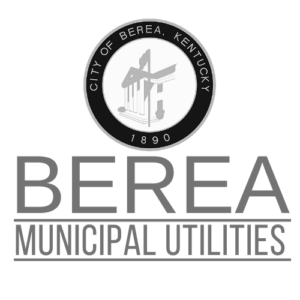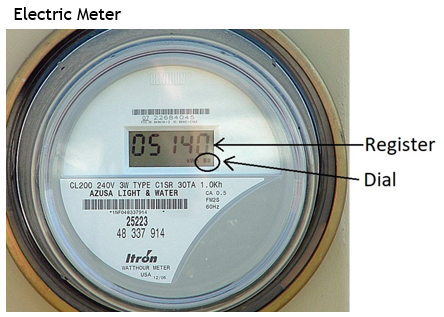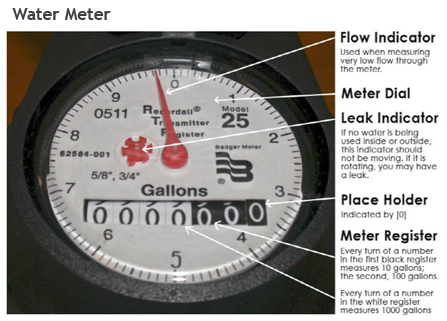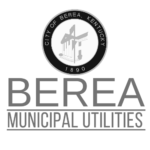About Your Meter
- Home
- Customer Service
- About Your Meter
Berea Municipal Utilities utilizes automatic meter reading (AMR) equipment for both water and electric services. AMR meter reading usually eliminates the need for the meter reading technicians to enter the property or home, or to locate and open an underground meter pit. Instead, meter readings are conducted with a reading device installed in a vehicle. The meter technician drives the vehicle while the reading device automatically collects the meter readings.
Each month, a meter reading devices records your usage so you will be billed accordingly. Usage is not estimated. The exact date it is read can be found on your bill.
When these readings are uploaded into the billing system they are immediately compared to reading from the previous month. If it is quite a bit lower or higher, the meter technician is asked to re-read the meter to make sure the reading is correct. This helps to ensure your bill is accurate each and every month.
Electric Meter
Electricity used in your home is measured in kilowatt-hours. As a quick reference, a 100 watt light bulb burning for 10 hours uses one kilowatt-hour. Being able to read your electric meter will provide a good way to monitor electric consumption in your home.
Electric meters are driven by the electricity moving through it. As the home draws current from the power lines, the dial on the meter moves. The speed of the meter dial depends on the amount of current drawn — the more power consumed at any one instant, the faster the dial will move.
The amount of kWh that has passed through the meter is recorded by the digits you can see on the face of the meter, read from left to right. Keep in mind that when BMU meter readers take readings on your meter, they DO NOT set it back to zero. Therefore, the numbers keep turning until the next time the meter is read. By subtracting two consecutive readings, the amount of electric usage is determined for the month.
Water Meter
Water used in your home is measured in cubic feet. One cubic foot is equal to 7.48 gallons. One cubic foot of water is enough water to run a dishwater about 50 times. Most BMU water meters are like odometers and are read from left to right. They register in cubic feet. The red hand or sweep hand makes one full turn to record one cubic foot.
The leak indicator is a small dial that spins when water advances through the meter. Continued spinning on the indicator means that water is being used and/or a possible leak. However, it may also move slightly due to system pressure changes. Should it appear you have a leak, make note of the meter reading and indicator location and do not use any water for at least an hour. Re-read your meter to determine if you do have a leak.
Please note that not all leaks are continuous, therefore not all leaks will reflect by only looking at the leak indicator. For example: If the handle on your toilet sticks occasionally, it may allow more water to pass through and after a few minutes the handle will “fix” itself causing the leak to stop.
If you find you have a leak, you may be eligible for a leak adjustment to you water and/or sewer bill. More information is available here. Leak and Pool Adjustments
Sewer
BMU does not use a meter to measure the flow into the sewer system. Rather, your sewer bill is based on the amount of water used on the property. Provisions are made for water not discharged to the sewer system. See Leak and Pool Adjustments for more information.
If your water service is provided by BMU, your sewer charges are based on the water meter readings obtained by BMU meter readers. If your water service is provided by Southern Madison Water District (SMWD), your sewer charges are based on readings provided monthly to BMU from SMWD.
Meter Malfunctions
Electric and water meters typically run for several years on the same home or business without failing – they are very reliable. BMU periodically changes out meters, so they be brought back to the operations department for testing. BMU requires our electric meters to test at least 98% accurately.
If a meter does develop a problem, however, it will usually run slower than normal and record lower than actual usage or quit recording at all. It is extremely rare for a meter to run faster.
If you think there is a problem with your electric or water meter, please contact us so we can perform a meter check.
Operations
200 Harrison Road
Berea, KY 40403
Phone: 859-986-4391
Fax: 859-756-3890
Billing
212 Chestnut Street
Berea, KY 40403
Phone: 859-986-4391
Fax: 859-986-5884



